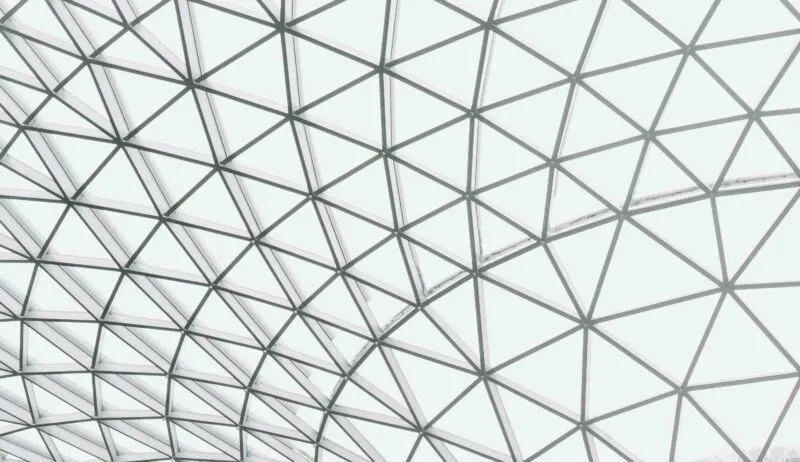Global patent law update - September 2021
Discover the most recent changes to patent law across the globe including the jurisdictions of Germany, China, India, Singapore and the UAE in our comprehensive summary.
Australia
In a decision that is inconsistent with at least the US and Europe, the Australian Federal Court has decided that DABUS, an AI machine, may be named as an inventor. Although the application was remitted back to the Patent Office for examination purposes, the Federal Court decision has been appealed by the Patent Office.
Brazil
Guidelines for patent examination concerning computer-implemented inventions
On 1 January 2021, examination guidelines for computer-implemented inventions were released. An English version can be found here.
Prior approval no longer required from Brazilian Health Surveillance Agency
Based on a new law, from 26 August 2021, patent applications related to pharmaceutical products and processes will not require prior approval from the Brazilian Health Surveillance Agency (ANVISA). This will allow a faster examination of pharmaceutical patent applications since only the Examiners of the Brazil Patent Office (BPO) will be involved in the examination process. Patent applications that were waiting ANVISA’s prior approval have now been returned to the BPO for normal examination.
Change in patent term
On 6 May 2021, the Supreme Court ruled that all patents will have a 20 year term starting from the filing date in Brazil. The provision that provided at least a 10 year term from grant was found to be unconstitutional.
Canada
The Federal Court of Appeal (Canada) (FCA) decided in July 2021 that the Minister of Health's refusal to grant data protection for Janssen's SPRAVATO® (esketamine) drug, was correct. Data protection had been refused on the basis that SPRAVATO® is an enantiomer of a previously approved drug. Therefore it was not an "innovative drug" eligible for such protection.
Chile
Amendments to the Patents Act have been made. The key amendments are:
- A provisional patent application has been introduced.
- Experimental use and private use prior to filing will not be novelty destroying.
- Where patent usurpation has been found, the legitimate owner may be granted a patent.
- Where a patent term adjustment has been provided, the maximum adjustment will be 60 days.
- A new renewal (annuity) fee structure has been introduced.
China
Guidelines for patent examination concerning biological and chemical fields
These entered into force on 15 January 2021.
- An examiner should consider any experimental data supplemented by the applicant after the date of filing to meet the requirements of Article 22(3) (inventiveness/obviousness) and Article 26(3) (sufficient disclosure) of the Chinese Patent Law. The technical effect demonstrated by the supplementary experimental data should be one that a person skilled in the art is able to obtain from the disclosure of the original patent application.
- In a presumption of lack of novelty, an examiner previously was permitted to cite a document if the prior art compound was “mentioned”. The new criteria requires that the prior art “recorded” the compound. This creates a somewhat higher threshold for an examiner to cite such a prior art document.
- This revision provides a "three-step method" for determining inventiveness of a chemical compound, that is: (a) determining the structural difference between the compound and the closest prior-art compound, (b) determining the technical problem actually solved by the invention based on the use and/or effect obtained by this structural modification, and (3) on this basis, determining whether the prior art as a whole provides technical motivation for solving the technical problem through this structural modification.
New patent law
Three important amendments came into force from 1 June 2021. These amendments provide for a Patent Term Adjustment (PTA), a Patent Term Extension (PTE) and patent linkage.
PTA
Must be requested within three months after the patent is issued. A PTA does not apply to patents issued before 1 June 2021. Patentees should file PTA requests for patents issued on or after 1 June 2021 although the requests will not be examined until the amended Implementing Regulations are finalized and become effective.
PTE
A PTE application must be made within three months from the date of approval of the new drug marketing authorization (MA). The maximum extension available is five years, but the resulting total effective patent term shall not exceed 14 years from the approval for marketing of the new drug. Although the drug and patent eligibility criteria are yet to be determined, only drugs approved on or after 1 June 2021 may be eligible. In the meantime, PTE request may be filed but will not be examined until the amended Implementing Regulations are finalised and become effective.
Patent linkage
This system is similar in principle to the US “Orange Book”. However, as yet no deadline to list patents has been established. The patents that may be listed include patents to the API compound, pharmaceuticals comprising the API, medical uses, biological products and medical use patents. Patents to intermediates, metabolite, crystal forms, preparation methods, and detection method are excluded. It is expected that drugs approved before 1 June 2021 and patents issued before this date are not clearly excluded and thus likely to qualify.
Eurasia
The Eurasian Patent Organization (EAPO) launched its Pharmaceutical Register on 1 March 2021. This Pharmaceutical Register contains information on Eurasian patents relating to active pharmaceutical ingredients that have been assigned International Non-proprietary Names (INNs). It is important to note that this does not constitute a kind of “Orange Book”.
Europe
From 6 January 2021, the patent prosecution highway pilot with the Canadian Intellectual Property Office became permanent. This allows for expedited examination at both offices.
Germany
Cooperation with China
Since 23 January 2012, patent applicants have been able to request accelerated examination of their applications at the German Patent and Trade Mark Office (DPMA) and at the China National Intellectual Property Administration (CNIPA). This option will continue to be available since the program has been extended until 22 January 2024. This program allows an applicant to file a request for accelerated examination as soon as at least one patent claim has been found to be patentable by the partner office.
Unified patent court
After the order dated 23 June 2021 of the German Federal Constitutional Court, the way is cleared for Germany to participate in the agreement on a Unified Patent Court (UPCA) and the protocol on the Provisional Application of the UPCA (the PAP-Protocol).
The first step, before the full entry into force of the UPCA will be Germany’s ratification of the PAP-Protocol. This can now take place imminently, given that the German Federal President signed the ratification bill on 7 August 2021, and it was promulgated on 12 August 2021.
Two further participating Member States are required for the PAP-Protocol to enter into force and mark the start of the provisional application period - the PAP. These additional ratifications are expected to take place by the end of 2021.
India
The Intellectual Property Appellate Board (IPAB) was abolished in April 2021. In its place, all Patent Office appeals are to be heard in the High Court. To deal with such as cases, an Intellectual Property Division has been established with procedural rules yet to be promulgated.
Official fees reduced for educational institutions
Official fees have been reduced by 80% for educational institutions. A form must be filed to obtain the fee reduction. If the underlying patent/application is assigned to a non-qualifying entity, any fee reduction previously enjoyed must be re-paid.
Israel
Patent term extension changes
New case law has been developed in relation to patents the subject of a patent term extension application (PTE). Until the expiration date of the PTE order, the patentee is subject to ongoing reporting obligations relating to the status of Reference Patents and PTE/SPCs for Reference Patents in Recognized Countries and the status of the Israel Registration of the medical preparation.
The Recognized Countries are US, UK, France, Germany, Italy & Spain. The Reference Patents are any patent in a Recognized Country, which protects the API (or its salts/esters/hydrates/crystalline forms), the process for its manufacture or its use, or the medical preparation comprising the API, which is claimed in a Basic Patent in Israel.
Modified examination practice changes
Applicants are permitted to elect modified examination instead of substantive examination. If modified examination is elected, the patent application may be based on a corresponding patent allowed by the EPO, USPTO or several additional patent offices. The application is then deemed to comply with all substantive patentability requirements including novelty and inventive step. Applicants must report to the Israeli Patent Office if the foreign counterpart is subject to revocation or opposition proceedings.
According to new working guidelines, if an applicant notifies that the foreign patent is challenged any time before the patent issues, substantive examination will be invoked. If the notice is filed after allowance or publication of the Israel patent application, allowance will be revoked and the application will be re-directed to substantive examination.
Japan
A bill to amend the Japanese Patent Law was enacted on 21 May 2021. An important provision includes a new remedy for the failure to file by the 30 month deadline for national entry in Japan. It also includes reinstatement provisions to cover missed deadlines, for example, filing a request for examination, paying annuities, filing a Paris Convention application etc. The Japanese Patent Office will announce after September 2022 when the Act will become effective.
New Zealand
New guidelines applicable to amendments filed during a proceeding, such as an opposition, were published on 3 August 2021. These guidelines establish the procedures to be followed along with relevant time frames.
PCT
From 1 January 2022, Sequence Listing must be prepared in the new ST26 format. See here for details from WIPO.
Singapore
Following a period of public consultation that ended on 12 August 2021, amendments of the Patents Act and Patent Rules are proposed. The key amendments are:
- Minor objections encountered in examination may be dealt with by an examiner issuing a Notice in place of a written opinion. This will have a non-extendible two month period for a response. A written opinion may only be issued by the earliest of a response is not filed or after the applicant has responded.
- Where an English translation of an application has been filed, this will be automatically published rather than requiring the filing of a form and the payment of a fee.
- The furnishing of sequence listing(s) will be mandatory when a patent specification discloses sequence(s). If a sequence listing has not been provided, the Registrar may invite the applicant to furnish the sequence listing for the purposes of search. But the sequence listing will not form part of the application.
South Korea
From 23 July 2021, South Korea expanded the ability to obtain a refund of examination fees should the Applicant decide not to proceed following requesting examination. For example, partial fees can be recovered even after a non-final Office Action issues.
Thailand
An amendment to the Patents Act has been published but is yet to be enacted. Some important provisions are:
- A Grace Period of 12 months whereby the disclosure of subject matter of an invention within the Period before the date of a patent application will not be an invalidating disclosure if the disclosure was due to, or made in consequence of, the subject matter having been obtained unlawfully or the disclosure of the subject matter was made by the inventor, the patent applicant or persons authorized by the inventors or the applicants.
- Inventions that have used genetic resources, genetic material, derivative and traditional knowledge must disclose the source, access and benefit sharing plan in a patent application in respect to such inventions.
- Patent applications will be published within 18 months from the application’s filing date in Thailand and again after the substantive examination is completed and the patent is granted. The opposition period will be 90 days from this second publication date.
- Division of a patent application may be requested by the applicant before the second publication, at allowance, of the patent.
- The timeframe for a request for substantive examination of a patent application will be reduced from the current five years from the publication date to three years from the filing date in Thailand.
- The timeframe for a request for substantive examination of a petty patent application will be increased from the current one year to six years.
United Arab Emirates
A new industrial property law will commence on 31 November 2021. Key points are:
- A 12 month grace period relevant to self-disclosure by an inventor or a third party who obtained information directly or indirectly.
- Conversion of a utility certificate into a patent application will be permitted.
- Accelerated examination will be permitted up to a certain number of cases each year.
- Pharmaceutical product claims are expected to be allowed along with purpose-limited claims but not methods of medical treatment.
Venezuela
In its Bulletin No. 608 24 May 2021, the Venezuelan Patent and Trademark Office (VPTO) has recommenced granting patents for the first time since 2006. The patents granted were to foreign applicants in the pharmaceutical, chemical and mechanical fields.
Vietnam
An amended patent law is being drafted. This is to ensure compliance with the EU and UK free trade agreements as well as the CPTPP and RECP treaties. It is expected that the law will allow for patentee compensation for regulatory delay in approval of pharmaceutical products.


